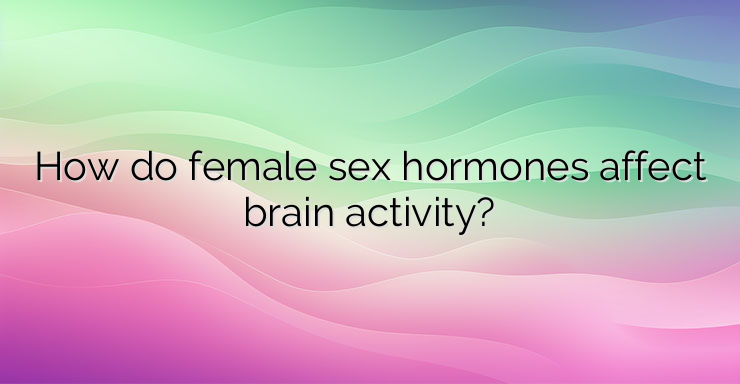Cognitive functions represent the brain’s ability to process information about its environment. These include thinking, memorizing, learning and problem solving. Impairments in cognitive capacity can be caused by many factors, but hormonal changes are an essential element. Estradiol, the female sex hormone, has been found to influence mental capacity and emotional balance. Estrogen has the potential to act as a neuroprotective factor and selectively exert beneficial effects on memory processes controlled by the hippocampus and frontal lobe of the brain. This is also the reason why hormone replacement therapy is used in menopausal patients who experience cognitive decline. The results of imaging studies have shown that it has a neuroprotective effect and allows the prevention of brain atrophy that occurs naturally in the aging process. Estrogen and progesterone stimulate the growth of neurons, the formation of connections between them and favor neuroplasticity. Some studies have shown significant changes in brain reactivity during menstruation. These features were characterized by increased reactivity of the amygdala during the luteal phase. This structure in the brain is important for memory processes. In addition, observations have shown that during the menstrual cycle there was a suppression of the leading hemisphere of the brain, which was due to the hormonal changes of menstruation. Gender differences, which are due to the action of different types of hormones, occur already in the early prenatal and postnatal period. During this time period, high levels of androgens trigger the development of spatial thinking and the construction of learning patterns. Low testosterone levels at various stages of life can lead to cognitive decline. Studies have shown that fluency of speech, fine motor skills, verbal memory and learning patterns are more common in women due to the effects of estrogens in the brain. Estrogen plays a key role in the functions of the brain, and specifically in the hippocampus and cerebral cortex. Two different types of estrogen receptors – alpha and beta – are expressed in these areas. Estrogen protects the brain from the natural changes that occur in it due to the aging process and prevents dementia. During pregnancy, for example, changes in progesterone and estrogen levels lead to impairments in attention, memory and executive capacity. This is due to the sensitivity of the hippocampus to changes in sex hormone levels. Increasing testosterone, on the other hand, lowers cognitive capacity. References: https://www.ncbi.nlm.nih.gov/pmc/articles/PMC6422548/


Leave a Reply